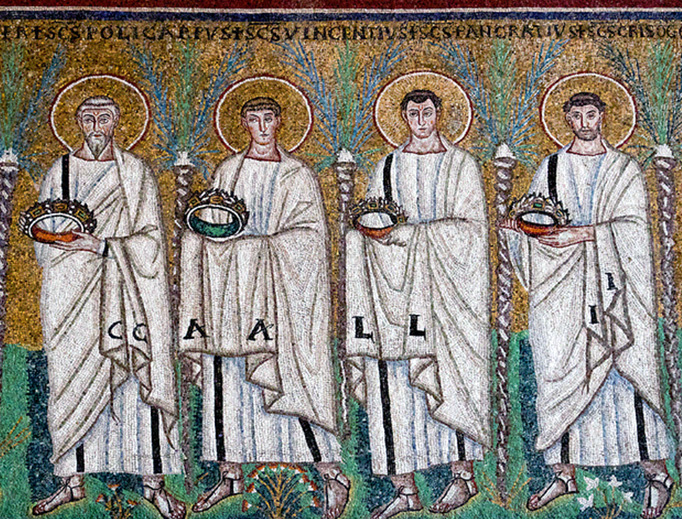- Feb 5, 2002
- 183,188
- 66,499
- Country
- United States
- Gender
- Female
- Faith
- Catholic
- Marital Status
- Married
- Politics
- US-Others
Early Christians like St. Polycarp clearly held the Catholic view on salvation.
St. Polycarp was the bishop of Smyrna and a disciple of St. John, according to St. Irenaeus (c. 130-c. 202) and Tertullian (c. 155-c. 220).
I’d like to examine his Epistle to the Philippians. It teaches us quite a bit about the doctrine of justification and the nature of saving faith in the very early Church.
He definitely did not believe in faith alone — one of the two “pillars” of the Protestant revolt. Protestants believe that works are the fruit of justifying faith, done in gratitude to God for a justification already achieved by faith alone through grace. This is the classic Protestant understanding of works, taught by both Martin Luther and John Calvin. It removes from good works any hint of merit or causal relation to salvation (even if understood as always in conjunction with works and soaked with and enabled by grace).
Sanctification is formally separated from justification and salvation in Protestant thought. Good works are promoted, but in the final analysis, they aren’t required for salvation. This is the meaning of faith alone.
Continued below.

 www.ncregister.com
www.ncregister.com
St. Polycarp was the bishop of Smyrna and a disciple of St. John, according to St. Irenaeus (c. 130-c. 202) and Tertullian (c. 155-c. 220).
I’d like to examine his Epistle to the Philippians. It teaches us quite a bit about the doctrine of justification and the nature of saving faith in the very early Church.
He definitely did not believe in faith alone — one of the two “pillars” of the Protestant revolt. Protestants believe that works are the fruit of justifying faith, done in gratitude to God for a justification already achieved by faith alone through grace. This is the classic Protestant understanding of works, taught by both Martin Luther and John Calvin. It removes from good works any hint of merit or causal relation to salvation (even if understood as always in conjunction with works and soaked with and enabled by grace).
Sanctification is formally separated from justification and salvation in Protestant thought. Good works are promoted, but in the final analysis, they aren’t required for salvation. This is the meaning of faith alone.
Continued below.

St. Polycarp, Who Learned the Faith From an Apostle, Did Not Believe in ‘Faith Alone’
Early Christians like St. Polycarp clearly held the Catholic view on salvation.



